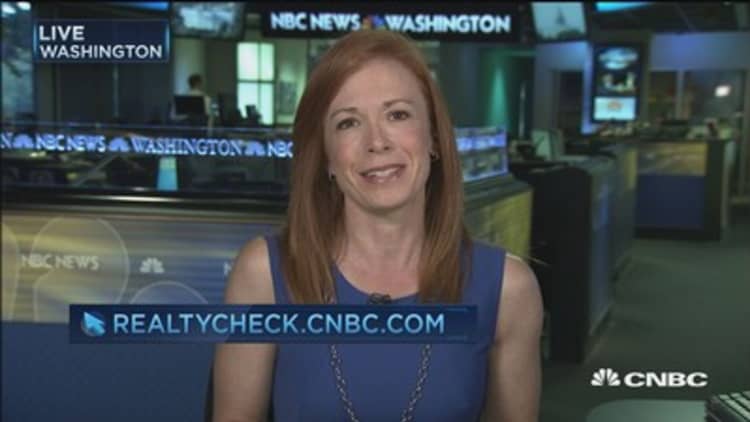
The rush to refinance home loans lost some steam last week, as mortgage rates lifted off their lows.
Even with less momentum, refinances are still driving business.
Total mortgage application volume fell 1.3 percent on a seasonally adjusted basis for the week. The Mortgage Bankers Association survey included an adjustment the previous week for the July Fourth holiday. Volume was up nearly 61 percent from the same week one year ago, thanks, in large, part to more refinances.
Applications to refinance a mortgage fell 1 percent for the week after rising nearly 24 percent in the past four weeks, since the Brexit vote crushed U.S. interest rates. Refinance volume is now up 105 percent from a year ago, when mortgage rates were nearly a full percentage point higher.
"Recent swings in mortgage rates have been relatively muted compared to Treasury rates, although on net both remain below their levels from just prior to the Brexit vote. Refinances fell slightly with rising rates last week, but the refinance share of 64.2 percent of applications was the highest since February of this year, as purchase volume was slow to come back following the July 4th holiday," said Mike Fratantoni, MBA's chief economist.
The average contract interest rate for 30-year fixed-rate mortgages with conforming loan balances ($417,000 or less) increased to 3.65 percent from 3.60 percent, with points unchanged at 0.36 (including the origination fee) for 80 percent loan-to-value ratio loans, according to the MBA.
"Our view on interest rates continues to be 'low for long' as we believe a Fed decision to raise interest rates will likely be on hold until June of 2017," Fannie Mae chief economist Doug Duncan said in his monthly economic outlook. "Brexit's economic impact on the U.S. will likely be limited, especially from a trade perspective, and should be a near-term positive for the housing and mortgage market as falling mortgage rates have prompted new refinance demand."
Mortgage applications to purchase a home decreased 2 percent on a seasonally adjusted basis from one week earlier but were nearly 16 percent higher than one year ago. Purchase volume is less dependent on weekly moves in mortgage rates, but it has been stymied more by a lack of homes for sale. The latest read on new housing starts was positive in June, but production remains well below historical norms.
"Without relief from new construction, housing inventory will likely remain tight, boosting home prices and constraining affordability," Duncan said.


